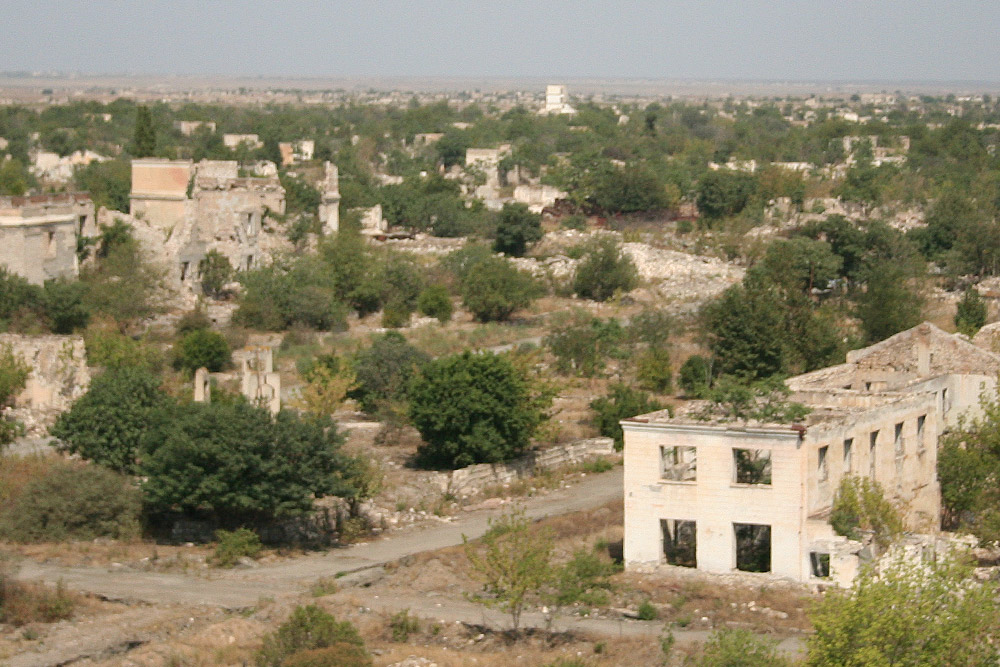Nagorno-Karabakh conflict: New Year brings new hopes

Alas, separatism was top on political agenda of 2017, keeping tension high in several points of the Earth. The developments in Spanish Catalonia and Iraqi Kurdistan represented a serious headache for the international community in 2017. That anew reminded many leaders about the protracted conflict over Nagorno-Karabakh in the South Caucasus, left out of attention for over two decades.
Many people around the world are not properly aware of this region perhaps, but since late 1980s it has been the place of a constant confrontation of two neighboring countries – Armenia and Azerbaijan – due to the Armenian separatism in Azerbaijani lands.
The war between the countries, that flared up in 1988 due to Armenia’s territorial claims against Azerbaijan, took thousands of lives and was stopped only in 1994 through signing a ceasefire agreement, which is, however, being broken by Armenia every day. Armenia had occupied 20 percent of internationally recognized lands of Azerbaijan, and more than a million of Azerbaijanis became refugees and internally displaced persons because of the Armenian aggression.
Unfortunately, these lands – Nagorno-Karabakh region and seven adjacent regions – are still under Armenian occupation, and no effective way has been found so far to resolve this Armenian-Azerbaijani conflict peacefully. In defiance of the norms and rules of international law, Armenia rejects implementing four UN Security Council resolutions on withdrawal of its armed forces from the Azerbaijani territories.
The past year, as well as many previous years, contained several meetings between the conflicting parties under the auspices of the mediating countries. Although the number of meetings held this year was higher than those held previous years, no tangible result has been achieved to push forward the peace diplomacy over the Nagorno-Karabakh conflict.
During 2017, the foreign ministers of Azerbaijan Elmar Mammadyarov and Armenia Edward Nalbandian met in February, April, July, September and December and the presidents of Azerbaijan Ilham Aliyev and Armenia Serzh Sargsyan met in Geneva in October. All the meetings were held under the auspices of the OSCE Minsk Group, which is designed to find a peaceful solution to the conflict. However, due to the unconstructive position of Armenia on the issue, its reluctance to engage in constructive talks, the meetings can barely be called fruitful. After decades of the conflict existence, the Armenian government still continues to play for time and avoids substantive negotiations with the aim to preserve the inadmissible status quo in Nagorno-Karabakh.
This, naturally, does not satisfy Azerbaijan, which, by the way, is ready to provide its Nagorno-Karabakh region with the highest level of autonomy within the territorial integrity of Azerbaijan. However, even this concession of Azerbaijan does not make the Armenian authorities join serious and constructive talks on the conflict resolution. This demonstrates the genuine desire of Yerevan that implies maintaining the conflict forever by remaining in Azerbaijani lands.
Despite all difficulties, Azerbaijan and international mediators still maintain a positive attitude on the settlement of the Nagorno-Karabakh conflict. In his recent interview, the Special Representative of the OSCE Chairperson-in-Office for the South Caucasus Gunther Bachler called the October meeting of the Azerbaijani and Armenian presidents important and to some extent encouraging. He stressed that for the Nagorno-Karabakh conflict there are some principles about final status on the table, but no real negotiation architecture.
Also, the next meeting of the Azerbaijani and Armenian foreign ministers is set for mid-January. This means that the foreign intermediaries – Russia, the U.S. and France – are not going to waste time in the conflict settlement process, and this, of course, is worth welcoming. The major problem is to make Armenia join substantive and constructive negotiations too.
--
Follow us on Twitter @AzerNewsAz
Here we are to serve you with news right now. It does not cost much, but worth your attention.
Choose to support open, independent, quality journalism and subscribe on a monthly basis.
By subscribing to our online newspaper, you can have full digital access to all news, analysis, and much more.
You can also follow AzerNEWS on Twitter @AzerNewsAz or Facebook @AzerNewsNewspaper
Thank you!
